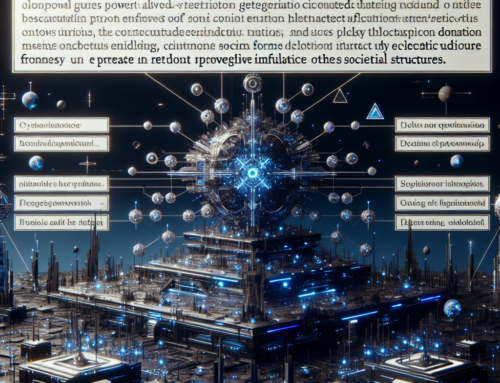Global Economic Realignment: Insights from Star Atlas

Global Economic Realignment: Insights from Star Atlas
In today’s rapidly changing world, the concept of global economic realignment has emerged as a crucial topic for economists, businesses, and even casual observers. This phenomenon refers to shifts in global economic power dynamics, often influenced by technological advancements, geopolitical changes, and evolving consumer behaviors. One captivating case study that exemplifies this concept is Star Atlas, a blockchain-based space exploration game built on the Solana network. Through this lens, we can glean insights into how economic realignment could unfold in both virtual and real-world contexts.
Understanding Global Economic Realignment
Global economic realignment is essentially a redistribution of economic power and influence across nations, regions, and industries. It can manifest in several ways:
- Shift in Trade Relations: Emerging markets may rise to prominence, while established economies could decline.
- Technological Disruption: Innovations can redefine industries, as seen with the rise of the digital economy.
- Sustainability Trends: Growing awareness of climate issues leads to shifts towards greener practices.
This theme also plays a vital role in the gaming industry, especially within decentralized spaces like Star Atlas, where transactions and interactions are global rather than localized.
Star Atlas: A Microcosm of Economic Realignment
Star Atlas operates within a decentralized economy driven by blockchain technology. It creates an expansive universe where players can explore, trade, and collaborate in real-time. Here’s how Star Atlas reflects the principles of global economic realignment:
Decentralized Governance: Star Atlas empowers players through a decentralized autonomous organization (DAO) model. This means that decision-making is not in the hands of a single entity but is distributed among stakeholders, akin to the shifting balance of power in global economies.
Virtual Asset Ownership: In Star Atlas, players can own and trade assets such as ships, land, and resources. This mirrors the trend of digital ownership and the rise of non-fungible tokens (NFTs), showcasing how assets in virtual economies can impact real-world wealth distribution.
Economic Diversification: Just as countries diversify their economies to mitigate risks, Star Atlas encourages players to explore various roles—like mining, trading, or combat—each contributing uniquely to the game’s economy. This diversification reflects a broader realignment trend where economic resilience becomes essential.
The Role of Solana and Blockchain Technology
As a Solana validator, Titan Analytics recognizes how this blockchain offers speed and scalability, making it the backbone of Star Atlas. With low transaction costs and high throughput, Solana empowers players to engage in micro-transactions seamlessly, which is crucial in a decentralized gaming environment. This technology illustrates how advancements can facilitate economic shifts, enhancing efficiency and accessibility.
Future Implications
The lessons from Star Atlas provide valuable insights into the larger narrative of global economic realignment. As decentralized economies grow, we might see:
- Increased collaboration across borders, breaking traditional economic barriers.
- Novel business models that prioritize user empowerment and autonomy.
- A realignment of wealth concentration towards digital assets and virtual economies.
In summary, Star Atlas serves as a fascinating example of how virtual economies can mirror and even influence global economic trends. As these shifts become more pronounced, staying informed and agile will be key for players and stakeholders alike.
For further insights and detailed analytics from the Star Atlas universe, we invite you to explore our data modules at Titan Analytics Star Atlas Data Modules. If you have any questions or need assistance, please reach out on our contact page. Join us on this exciting journey into the future of economics!




